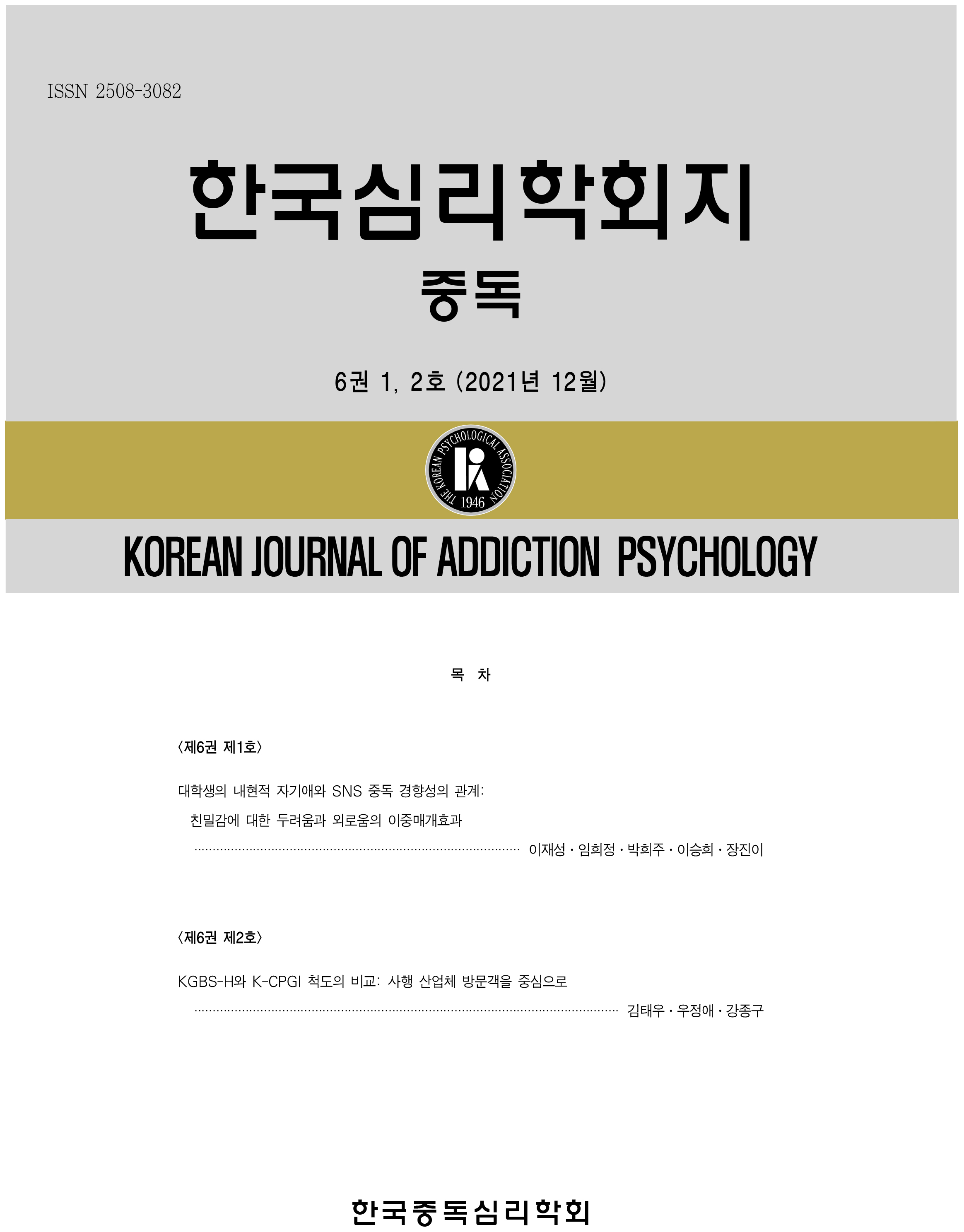청소년 도박문제를 예측하는 비합리적 신념의 탐색: 우울과 불안의 촉진효과
A study of irrational beliefs for predicting adolescence gambling problems: Aggravating effects of depression & anxiety

초록
본 연구의 목적은 청소년 도박문제를 예측하는 비합리적 신념의 구체적인 목록을 탐색하고, 우울 및 불안정서가 비합리적 신념의 효과를 촉진하는지 살펴보는 것이다. 이를 위해, 온라인조사업체에 등록되어 있는 13~18세 청소년 중 다섯 종류의 불법도박을 한번 이상 해본 경험이 있는 659명을 대상으로 자료를 수집했다. 연구에 활용한 비합리적 도박신념 목록은 김예나 등(2018)이 수행한 청소년 도박문제 발달 과정에 대한 질적연구 원자료와 기존에 성인들을 위해 개발한 도박 관련 신념 척도를 참고하여 개발했다. 분석 결과 단일요인으로 구성된 일곱 개의 구체적인 비합리적 도박신념 목록이 확인되었고, 각각의 신념은 성별이나 연령, 학업수준과 관계없이 불법도박행동빈도와 도박문제수준을 높이는 것으로 나타났다. 더하여 청소년의 비합리적 도박신념과 도박문제 사이의 관계를 우울 및 불안정서가 촉진하는지 살펴보기 위해 조절효과를 검증한 결과, 우울 및 불안 수준이 높을수록 비합리적 도박신념이 도박문제수준을 증가시키는 효과가 더 큰 것으로 나타났다. 마지막으로 본 연구결과를 청소년 도박 예방과 상담의 관점에서 논의했다.
- keywords
- 청소년 도박문제, 도박중독, 비합리적 신념, 우울, 불안
Abstract
The purpose of this study is to explore a specific list of irrational beliefs that predict adolescence gambling problems. In addition, we tried to examine whether depression and anxiety promote the effects of irrational beliefs. To that end, we collected data from 659 adolescents(13-18 ages) registered On-line research company who answered that they had experienced five types of illegal gambling more than once. The list of irrational gambling beliefs used in this study was developed by referring to the qualitative research data on the development process of the youth gambling problem conducted by Kim et al.(2018) and by referring to the Irrational gambling beliefs developed for adults. The analysis identified seven irrational gambling beliefs items consisting of a single-factor structure. Each irrational gambling belief increased the frequency of illegal gambling behavior and gambling problem regardless of gender, age, and academic level. As a result of examining the moderating effects of depression and anxiety in the relationship between irrational gambling beliefs and gambling problems, it was found that the higher the level of depression or anxiety, the greater the effect that irrational gambling beliefs increase the gambling problem level appear. Finally, the results of this study were discussed in terms of youth gambling prevention and counseling.
- keywords
- adolescence gambling problems, gambling addiction, irrational beliefs, depression, anxiety
- 투고일Submission Date
- 2018-10-11
- 수정일Revised Date
- 2018-11-15
- 게재확정일Accepted Date
- 2018-12-09
- 다운로드 수
- 조회수
- 0KCI 피인용수
- 0WOS 피인용수


